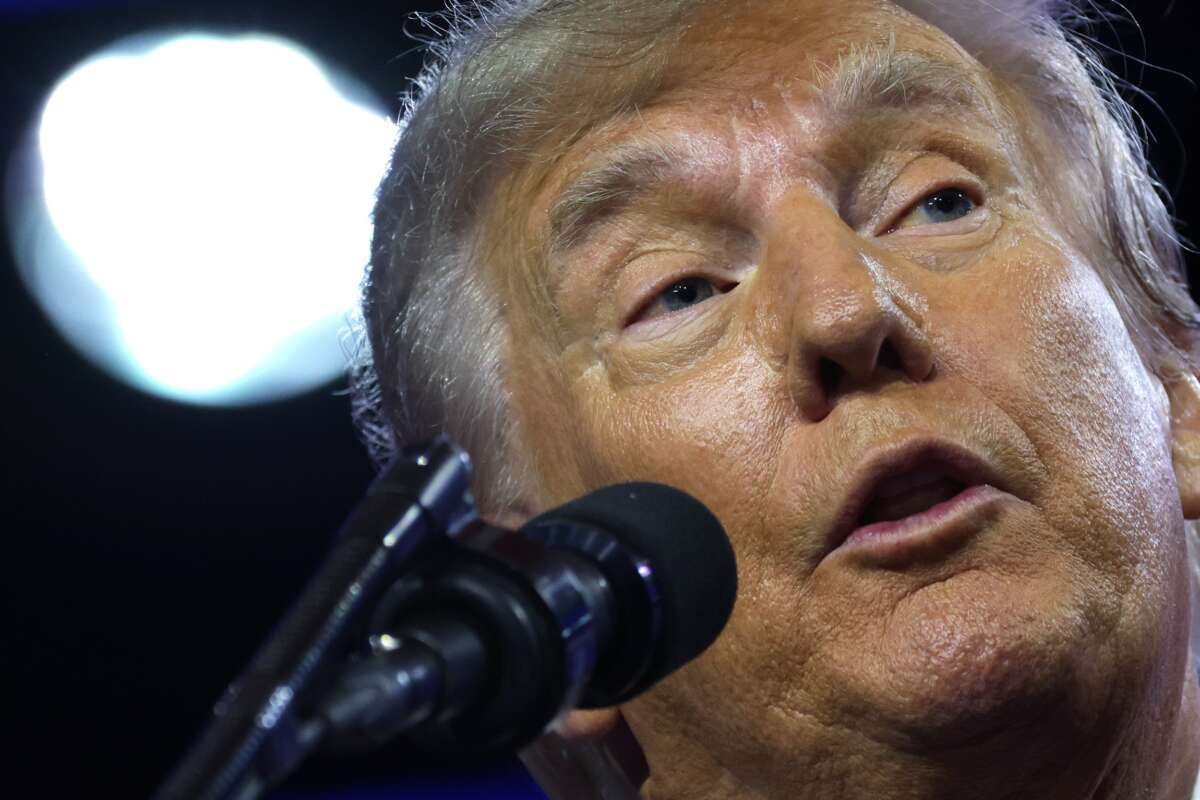Did you know that Truthout is a nonprofit and independently funded by readers like you? If you value what we do, please support our work with a donation.
Records kept by a member of Trump’s legal team indicate that the former president understood as far back as June 2022 that documents with classified markings needed to be returned to the federal government.
Donald Trump was served with a subpoena at that time by the Department of Justice (DOJ), which told the former president that he had to return all classified documents to the National Archives and Records Administration (NARA). Trump’s lawyers, including Evan Corcoran, drafted a document on his behalf that said Trump had complied with the subpoena order.
In August, after evidence surfaced that Trump had more classified material in his possession (in defiance of the subpoena that was carried out in June), the FBI conducted a warrant search of his Mar-a-Lago residence in Palm Beach, Florida, where they retrieved more than 100 additional classified documents.
Trump has since maintained that he had declassified them. However, CNN reported last week that NARA had given Jack Smith, the special counsel overseeing the investigation, at least 16 documents indicating that Trump understood he couldn’t declassify materials in the manner he’s asserted.
On Monday, The Guardian reported on Corcoran’s notes, which show that the lawyer had explicitly explained to Trump why the documents needed to be returned to the federal government. The report was based on weeks of discussions with individuals who were familiar with the lawyer’s notes, which have also since been handed over to Smith.
As part of a separate subpoena order, Corcoran gave Smith 50 pages of notes showing he informed Trump that classified documents in the former president’s possession needed to be turned over to the Department of Justice (DOJ) and NARA. Earlier this year, Corcoran also testified before the DOJ’s grand jury, after Smith and his team of investigators had shown strong enough evidence to indicate that Trump used Corcoran and/or his legal counsel in furtherance of a crime.
The notes detail Corcoran’s steps after the subpoena was issued, Trump’s reaction and William Nauta’s (Trump’s personal valet at Mar-a-Lago) actions after the DOJ demanded the return of the documents. Nauta allegedly moved documents, on Trump’s behalf, both before and after the subpoena was served out.
The investigation is focusing on why the subpoena order wasn’t followed and whether Trump arranged for classified documents to be moved in order to keep them in his possession — an action that would constitute obstruction, as it would directly contradict the subpoena order.
Notes from Corcoran detail how Trump and Nauta “had unusually detailed knowledge of the botched subpoena response, including where Corcoran intended to search and not search for classified documents at Mar-a-Lago, as well as when Corcoran was actually doing his search,” The Guardian reported.
Nauta had unlocked the storage locker for Corcoran so the Trump lawyer could search for the documents. When Nauta offered to help him look through the boxes, Corcoran declined.
The search of the storage locker took several days, and it was often left unattended, Corcoran wrote in his notes.
The Guardian also reported that Corcoran’s notes described Trump’s facial expressions and reactions when they discussed the subpoena order. Trump was reportedly irritated after learning what Corcoran had written about, regarding how he looked when informed about aspects of the order, sources for the publication said, which he learned about when the notes by Corcoran were subpoenaed by Smith.
A spokesperson for Trump has released a statement giving the standard response to the reporting, calling it a “targeted, politically motivated witch-hunt.” However, polling indicates that most Americans trust the investigation.
At the time of the Mar-a-Lago FBI search in August, an NBC News poll found that close to six in ten voters approved of investigations into Trump (including various other federal and state-level inquiries) continuing to move forward. A more recent poll, published in March by NPR/PBS NewsHour/Marist, found that 56 percent of Americans described the investigations into Trump as “fair,” with three-quarters (75 percent) saying Trump has done something either illegal or unethical.
Media that fights fascism
Truthout is funded almost entirely by readers — that’s why we can speak truth to power and cut against the mainstream narrative. But independent journalists at Truthout face mounting political repression under Trump.
We rely on your support to survive McCarthyist censorship. Please make a tax-deductible one-time or monthly donation.
